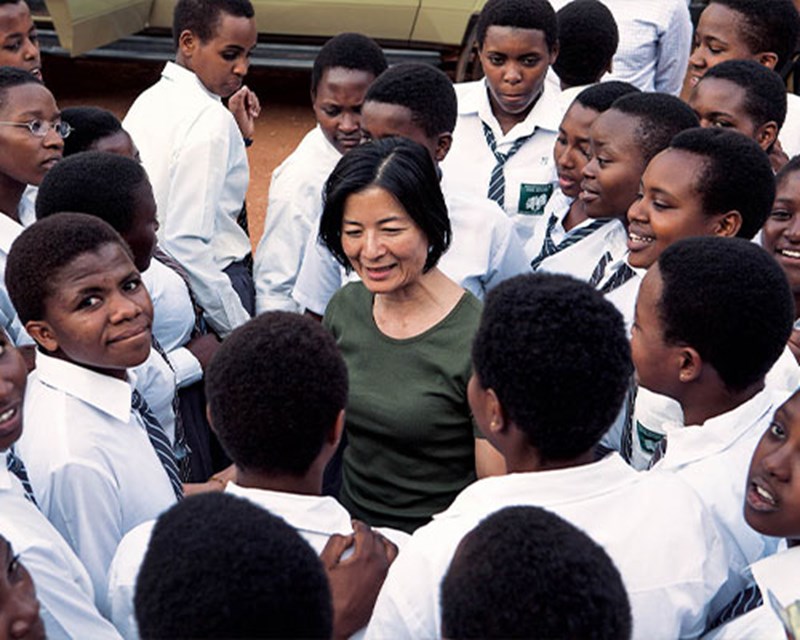A young girl named Helen once told me we should look at every war as if it is our family members fighting each other. As a global family, we must find a diplomatic solution to man-made crises. It is equally our duty to provide succour to those whose lives have been shattered by conflict. It is for children like Helen that we must shine a light on the tragedy of displaced men and women, and the children who make up half the world’s refugee population.
In the early days my first instinct was to try to help everyone at the same time. But there was always another suffering child or woman I couldn’t reach. I learned that it’s better to focus our contributions on one objective at a time so that we make a meaningful difference to people’s lives. We might not reach every single person who needs help, but if we lift up some segments of the population, we transform them into humanitarians who in turn will support the people we can’t reach.
Over the decades, I have been privileged enough to lead humanitarian efforts from Jordan to Lebanon and Egypt, from Palestine to Somalia and beyond. The aid workers I meet have one thing in common: they are ordinary people with extraordinary hearts.
To make a lasting difference, however, we – and they – cannot rely solely on emergency aid. You don’t teach independence by encouraging dependence. We must invest in the future of refugees, through education, as we would invest in the future of any of our children.







